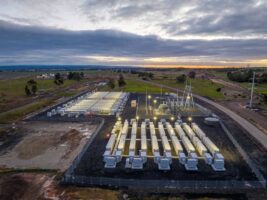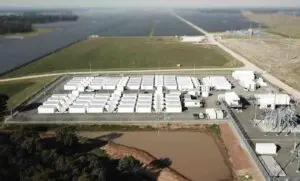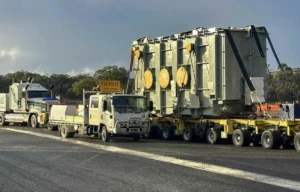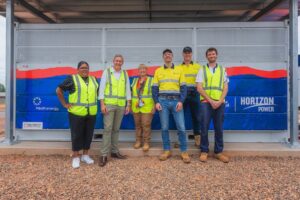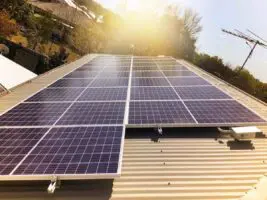Australian vanadium redox flow battery maker VSUN Energy has joined forces with Sydney-based North Harbour Clean Energy to find and develop grid-scale opportunities for “Australian invented” long-duration battery storage technology.
The two companies said on Thursday that they had signed a memorandum of understanding (MoU) to facilitate development of vanadium redox flow batteries (VRFBs) into existing and future projects being developed by NHCE.
NHCE is a relative newcomer to the scene, founded roughly two years ago by managing director Tony Schultz, who has a background at private investment firm North Harbour Partners and before that at global investment giant KKR.
The company’s broad goal is to develop and operate renewable energy and storage projects, but its particular focus is on long duration energy storage, including pumped hydro and flow batteries for stationary energy applications.
NHCE is also part of the business and research partnership that won the backing of the previous Coalition federal government under its $50 million Trailblazer program, through which it is working with UNSW on the optimisation of VRFB cell design.
VSUN, which is the fully owned battery tech subsidiary of ASX-listed Australian Vanadium, has been working away at commercialising its take on vanadium flow batteries, which were originally developed out of UNSW in the 1980s.
Vanadium batteries are attractive as a long-duration energy storage option because of their ability to store large amounts of energy, their 20 year lifespan, a very high cycle performance, minimal degradation, and for being safe and non-flammable.
VSUN managing director Vincent Algar said on Thursday that the MoU between the two companies aimed to grow the vanadium energy storage sector and “do justice” to an Australian invented technology.
“In working together on VRFB projects, VSUN Energy and NHCE will have the opportunity to support the development of large projects through access to a company with strong funding capability,” Algar said.
NHCE’s Schultz said the partnership with VSUN Energy aimed to accelerate the roll-out of VRFBs at industrial scale in Australia, allowing the rapid uptake of renewable energy to continue.
“This technology is perfectly suited to long duration stationary energy storage, has a number of advantages over alternative technologies,” he said.
“Australia has a unique opportunity given its invention of the technology in the 1980s, coupled with our large share of known vanadium resources.”
To that end, VSUN’s parent company AVL has also had support from the federal government, via a grant of $1.25 million in 2020 towards helping it to become one of the world’s lowest-cost producers of vanadium.
The ASX-listed AVL said at the time it would use the CRC-P Grant money to help fund industry-leading critical metals research aimed at improving the efficiency of vanadium processing, and to decrease costs of the Australian Vanadium Project, AVL’s open-pit vanadium mine in Meekatharra, Western Australia.


